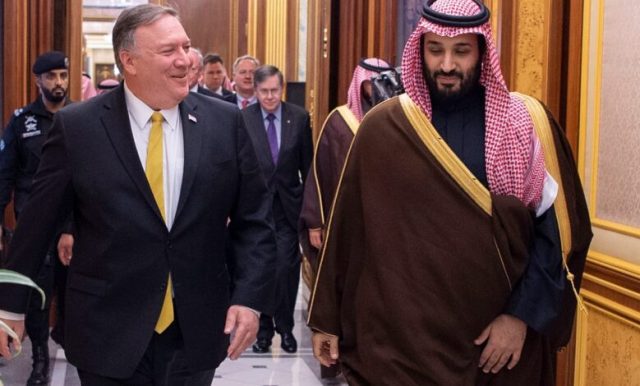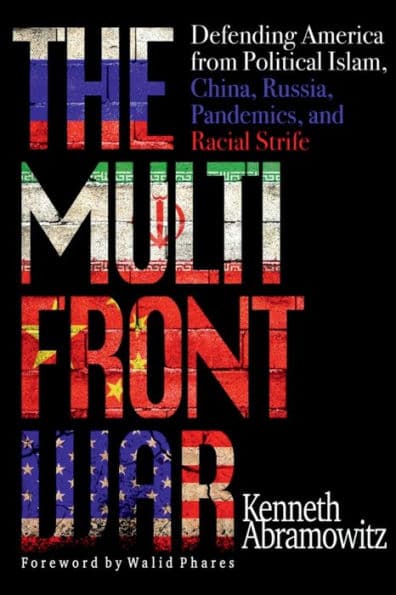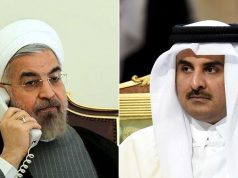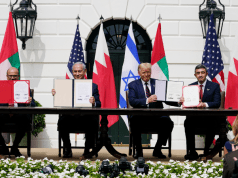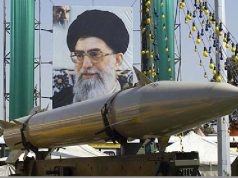.
By Ayoob Kara
Saudi Arabia is the most important state in what we call the “Sunni coalition states.” In the Islamic faith, Saudi Arabia is the holiest country in the world. It is where Mecca and Medina, the two holiest places in Islam, are located. Throughout the Islamic world, Muslims pray in the direction of Saudi Arabia and a pilgrimage to Mecca is one of the five pillars of the Islamic faith. Aside from the country’s religious significance, Saudi Arabia is a major oil producing country, with significant political clout.
After the civil wars in Syria, Yemen, and Libya, which became more and more a struggle between Iran and the Sunni states, Saudi Arabia become the key player in the Sunni states, thus creating a broad coalition to fight against the mullahs in Tehran.
After Obama’s Arab Spring failed, the Middle East had two camps: the Iranian regime and its proxies, and the Saudi Arabian coalition that led the Sunni states, which stood opposed to the mullahs’ tyranny and that of the Muslim Brotherhood as well.
In the Saudi Arabian Coalition, there are states that signed peace agreements with Israel, like Egypt and Jordan. There are also some countries in the Saudi Arabia coalition that in the past had good relations with Israel, such as Qatar, Oman, Mauritania, and Tunisia. But after the Oslo Agreements failed, all these states, which are part of the Saudi Arabian coalition, stopped their relationships with Israel, except for Jordan and Egypt.
Because the Saudi Arabian coalition has a common enemy with the State of Israel, they became our friends. In the Middle Eastern culture, when you have the same enemy, you become friends. I helped initiate the Abraham Accords Agreement in 2011, after the Arab Spring and I was trying to help the Sunni regimes to stop the extremism, terrorism, and the Islamic Republic of Iran.
During this time, I met with different leaders in the Sunni states. All of them agreed with me that Saudi Arabia must be at the forefront of the Abraham Accords. After President Trump was elected, he accepted my plan that the only way to make a good relationship in the Middle East was to influence Saudi Arabia to be part of this vision. When Trump visited the region in 2016, he visited only Saudi Arabia and after that came to Israel. I met him in Israel, and we discussed Saudi Arabia becoming part of the Abraham Accords. Trump agreed with me on that.
However, Saudi Arabia has a special status in the Middle East. Due to that, we waited for a few states in their coalition to move in this direction first, such as the UAE, Bahrain, Morocco, and Sudan. I was positive that Saudi Arabia would join afterwards, but the Saudis stopped the whole process when Biden was elected.
Yet, that does not mean that Saudi Arabia is not part of the Abraham Accords. Although they did not sign an agreement till now, they are part of the agreement, as no country in the Saudi Arabian coalition would give the green light to join without Saudi Arabia’s consent. I am sure that the problem now is the governments in Israel and the USA. If it was not for Biden and Bennett, they would have been part of the Abraham Accords by now, officially rather than unofficially .
In the US, the Biden administration is not pushing hard enough for Saudi Arabia to make peace with Israel. They are not doing it because it was Trump’s initiative and for no other reason. The Democrats in America are spiteful of Trump’s success with the Abraham Accords, and therefore they don’t give it the respect that it deserves. However, the moment that this situation changes, Saudi Arabia’s joining the Abraham Accords is only a matter of time.
Ayoob Kara was born in the Israeli Druze town of Daliat el-Carmel in 1955. He completed his army service in the Israeli Defense Forces with the rank of major and studied business administration and public policy. He served in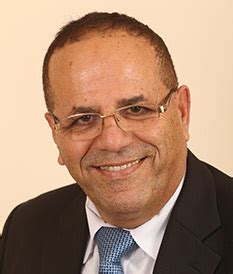 the Knesset from 1999 until 2006, and as Deputy Minister of Development of the Negev and the Galilee, Minister at the Prime Minister’s Office for Special Functions, and as Israel’s Minister of Satellite Communications and Cyber.
the Knesset from 1999 until 2006, and as Deputy Minister of Development of the Negev and the Galilee, Minister at the Prime Minister’s Office for Special Functions, and as Israel’s Minister of Satellite Communications and Cyber.
In 2015, Kara recognized an opportunity for bridging diplomatic relations between Israel, the Middle East, the Gulf countries and other Islamic states in the region, and he promoted a regional economic conference between the countries. After the election of President Donald Trump, Kara met with him, which led to the economic conference in Bahrain, which concluded that there is a need for a non political body to initiate and promote the economic initiatives for the region.
Ken`s new book The Multifront War is now available in 190 countries via Amazon and also on BNs in the US. Buy it now!
.
.
.

